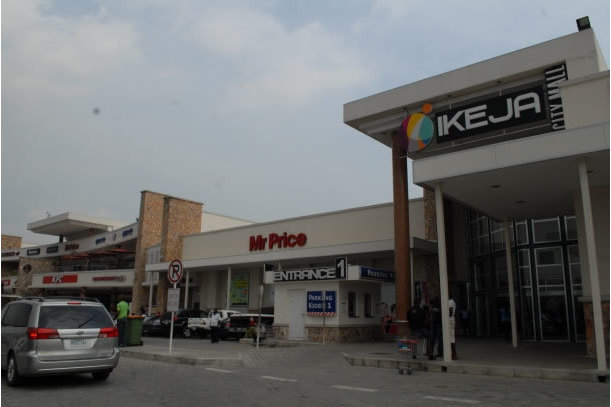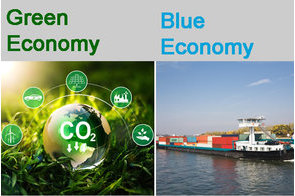Latest News
Consumer confidence levels remain steady in Sub Saharan Africa

News Highlight
- 72 percent of respondents in Nigeria believed job prospects would be good or excellent in the next year.
- 81 percent of South Africans still believe the country is in a recession.
Despite weakened currencies and declining macroeconomic indicators in sub Saharan Africa due to commodity price shocks, the latest Nielsen Consumer Confidence Index shows that consumer confidence in the region was relatively stable in the fourth quarter of 2015.
Consumers in Nigeria showed optimism in the latest CCI, despite tight economic conditions in the country. Nigeria retained a score of 127 in Q4 2015 on the index by Nielsen, a global performance management company that provides a comprehensive understanding of what consumers Watch and Buy.
Consumer confidence levels of above a baseline of 100 indicate degrees of optimism, confidence levels of below 100 reflects pessimism. The Nielsen consumer confidence index measures perceptions of more than 30,000 respondents with internet access in 61 countries.
Nigerians displayed a positive sentiment for their job prospects and personal finances. 72 percent of respondents in Nigeria believed job prospects would be good or excellent in the next year. 82 percent of Nigerian respondents believed the state of their personal finances was good or excellent, as 50 percent of respondents in the country said now is a good time to spend.
“The new reality for Nigerian consumers will be about maintaining their positive outlook, while adapting to market conditions which will be most keenly felt in their reduced disposable income and ability to spend, leading to reprioritisation of spend and consumption,” Lampe Omoyele, Managing Director of Nielsen West Africa, said.
Ghana
Job sentiment was notably lower in Ghana (at 42 percent), but on the increase. Meanwhile, 71 percent of Ghanaian respondents believed the state of their personal finances was good or excellent. According to the survey, 67 percent of consumers in Ghana said they did not have spare cash. (60 percent of respondents in Nigeria said they did not have spare cash).
For those who did claim discretionary funds, savings continued to be a priority for them. 79 percent of respondents in Ghana (and 78 percent in Nigeria) plan to put money into savings accounts.
59 percent of Nigerians said they would spend their discretionary income on investing in shares of stock/mutual funds; 45 percent of Ghanaians said they would spend theirs on new clothes.
Ghana jumped on the CCI from 99 score in Q3 2015 to 104 in Q4 last year. Consumer sentiment declined in Kenya from 117 to 103 in Q4 2015. South Africa remained unchanged on the index at 82.
Kenya
Kenya saw its lowest job prospect since the country joined the survey in Q4 2013, as 45 percent of respondents said they viewed their job prospects as excellent or good over the next 12 months, while 48 percent of respondents said they viewed their job prospect as not so good or bad.
The majority of consumers in Kenya are cash strapped, with two-thirds of Kenyan respondents saying they did not have spare cash. Among those who did claim discretionary funds, 82 percent said saving continued to be a priority for them; 81 percent said it was home improvements/decorating and 69 percent said investing in shares of stock or mutual funds.
South Africa
Job sentiment in South Africa was low. 74 of respondents in the country said job prospect is so good or bad; 17 percent said good (down 5 percentage points from the third quarter) and 4 percent said excellent.
However, perceptions of personal finances in South Africa remained relatively stable in comparison to the previous quarter. 57 percent of respondents viewed their personal finances as excellent or good, while 34 percent viewed it as not so good and 6 percent as bad.
81 percent of South Africans still believe the country is in a recession, while 65 percent don’t believe the country would be out of it within the next 12-months.
Nielsen South Africa Managing Director, Craig Henry, said, “Despite a challenging final quarter of 2015, South African consumers have remained resilient in their outlook. Continued drought, coupled with a tumbling currency and political turmoil, will adversely affect job prospects, consumer food prices and overall sentiment in 2016.”
Globally, consumer confidence ended 2015 on a subdued note. The index declined two points from the third quarter to 97 -- the same score as the start of the year. Other findings of the survey show that more than half (55 percent) of respondents around the world believed they were in recession in Q4 2015. Fears about terrorism escalated to new highs in North America and Europe.
The Nielsen Global Survey, which includes the Global Consumer Confidence Index, was established in 2005.
Related News
Latest Blogs
- AML/CFT regulations and data protection require balance in regulating cryptocurrency
- It's time for honest discussions on Nigeria's security architecture
- Driving economic growth through green transition in Nigeria
- CBN is fighting inflation instead of stagflation
- Why electricity privatization failed (2)
Most Popular News
- IFC, partners back Indorama in Nigeria with $1.25 billion for fertiliser export
- CBN increases capital requirements of banks, gives 24 months for compliance
- Univercells signs MoU with FG on biopharmaceutical development in Nigeria
- CBN settles backlog of foreign exchange obligations
- Ali Pate to deliver keynote speech at NDFF 2024 Conference
- Euromonitor forecasts Sub-Saharan Africa GDP to grow to $4.5trn by 2040






